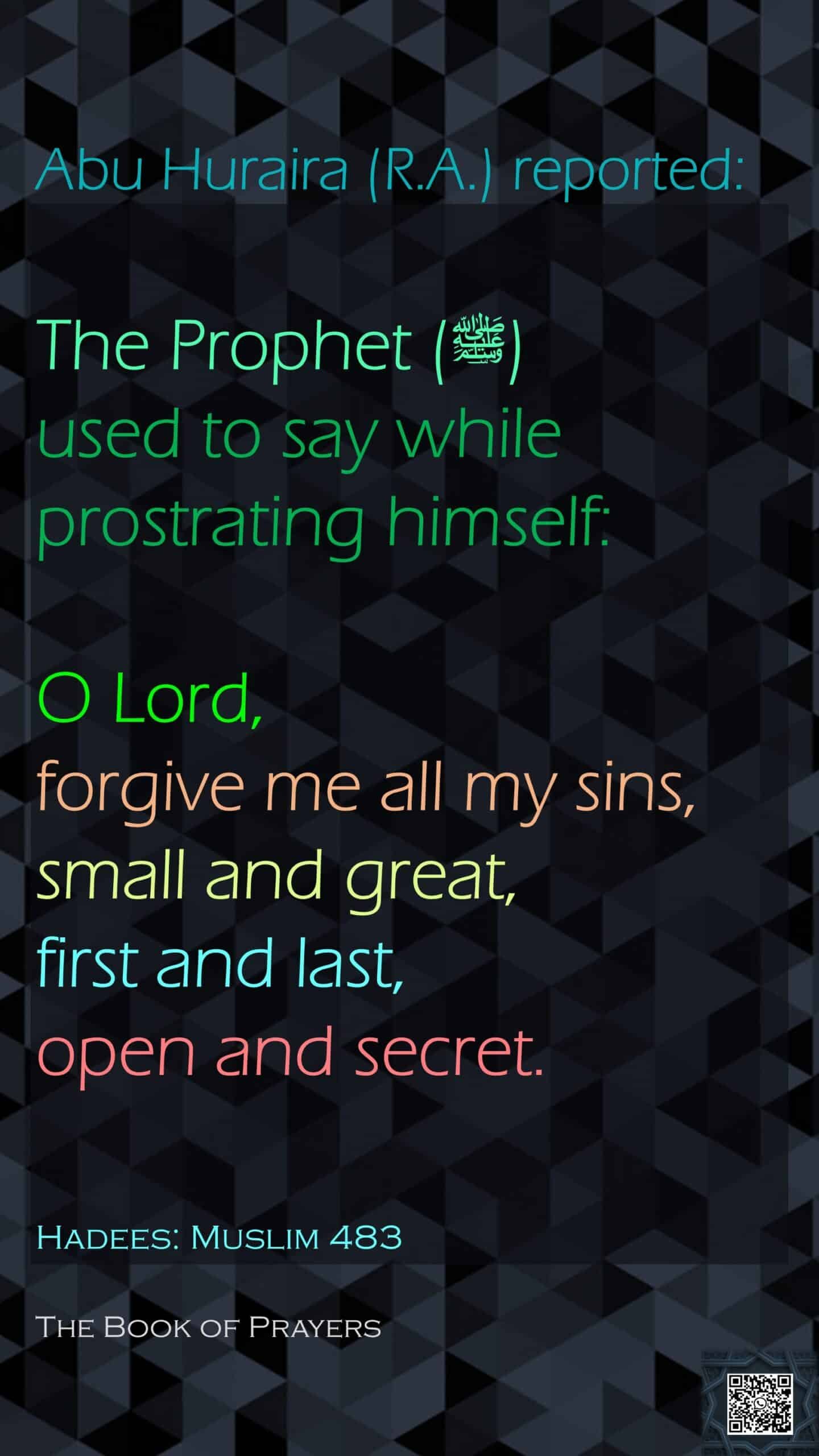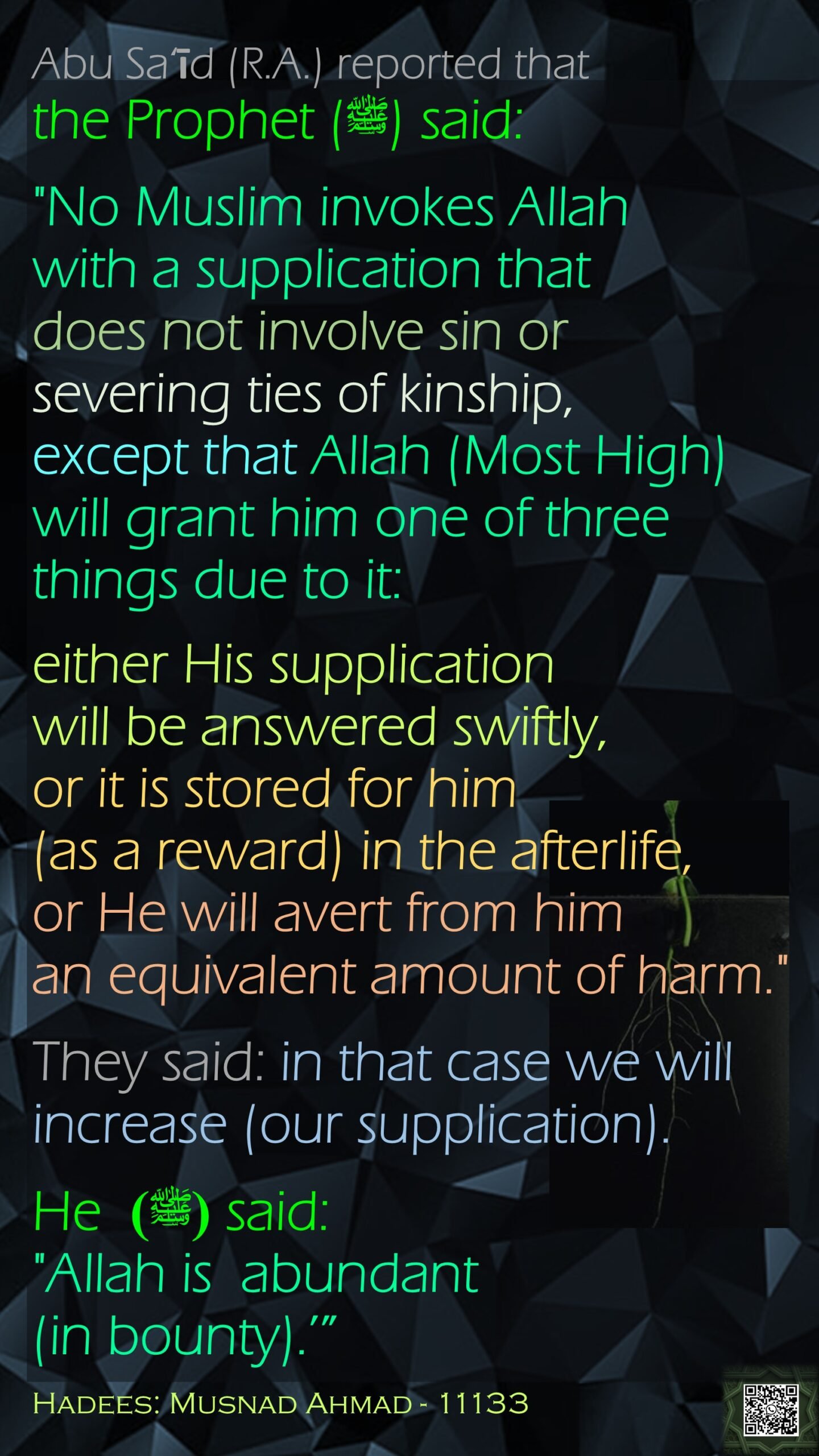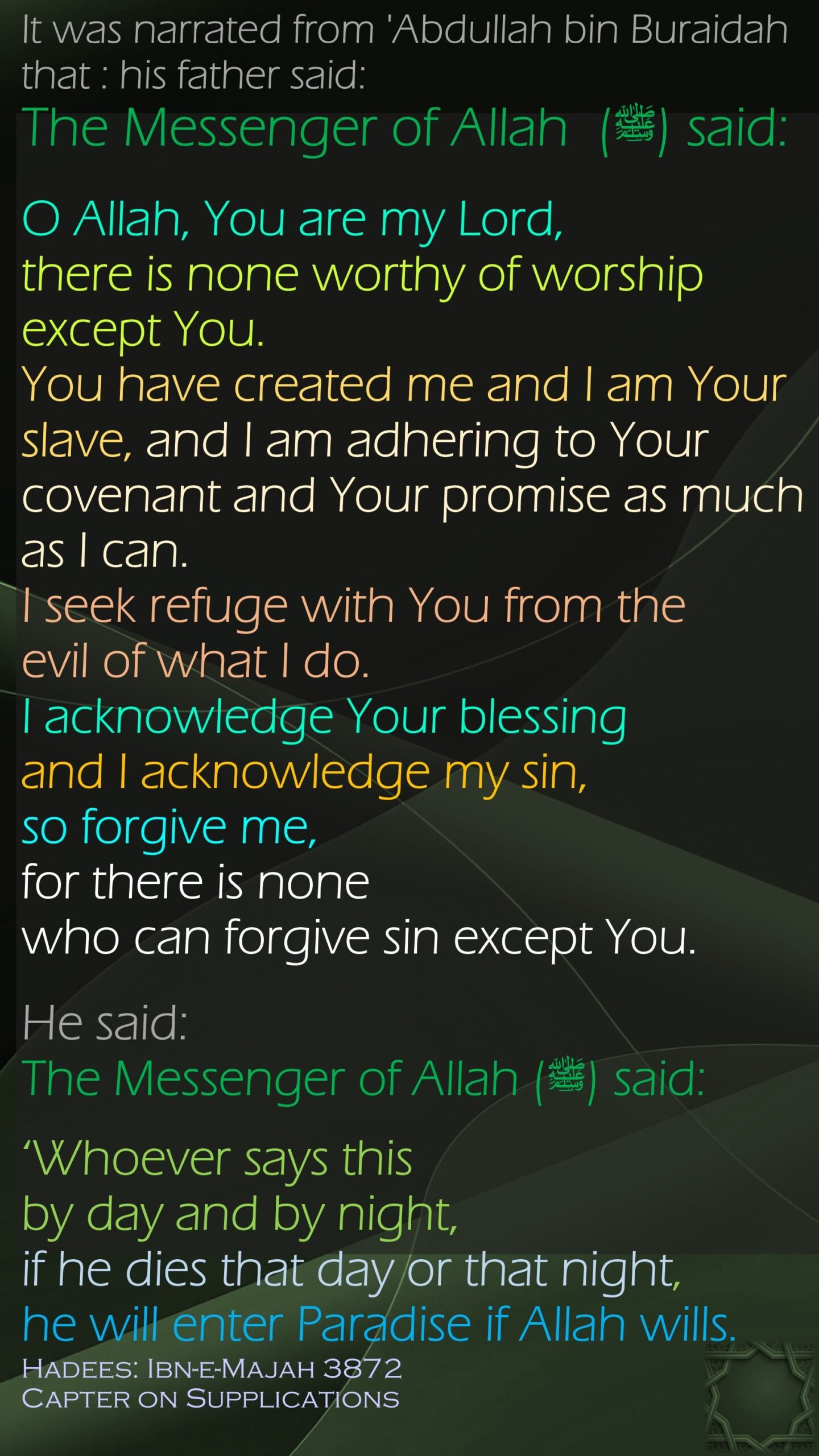12
Sep, 2025
Quran 3:146~148
Islam, Quran Allah, Allah's cause, ayat, daily, disbelieve, excess, fight, forgive, good-doers, grant, hereafter, inspirations, islam, islamic, jihad, love, Muhammad, quran, reward, sin, Surah, victory, World
10
Sep, 2025
Hadees: Bukhari 6326
Hadees, Islam 2705, 4/2078, 6326, 834, Abu bakr, Allah, authentic, book, bukhari, daily, forgive, forgiveness, Forgiving, hadith, inspirations, Invocation, islam, islamic, Merciful, Mercy, most, Muhammad, Muslim, prayer, Prophet, quran, Sahih, siddiq, sin, supplication, Surah, tashhud, wrong, wronged
20
Jul, 2025
Quran 53:33~42 (Ayah an-Najm)
Islam, Quran 033, 035, 036, 038, 040, 042, 053, Abraham, Allah, an-Najm, ayat, burden, covenant, daily, effort, endevour, inspirations, islam, islamic, knowledge, Moses, Muhammad, nil, no, outcome, quran, seen, share, sin, Soul, strive, Surah, the Star, unsee
24
Jun, 2025
Hadees: Musnad Ahmed 11133 (Fate of Supplications)
Hadees, Islam 11133, abundant, afterlife, ahmed, Allah, better, Bounty, daily, equivalent, grant, hadees, harm, increase, inspirations, islamic, kinship, Mercy, more, Muhammad, musnad, often, remove, reward, sin, store, supplicate, supplication, swift, three, ti
20
May, 2025
Hadees: Tirmizi 3474
Hadees, Islam 3474, Allah, alone, associate, belong, Chapter, daily, Death, degree, destroy, devil, dislike, except, exist, fajr, hadees, hadith, inspirations, islam, islamic, La Ilaha Il-Lallah, Life, Muhammad, nimaz, partner, power, powerful, praise, praiseworthy, prayer, prophetic, protection, raise, reward, secure, security, shaitan, sin, supplication, ten, There is no God but Allah, tirmidhi, Tirmizi, without partner, worship
7
Feb, 2025










